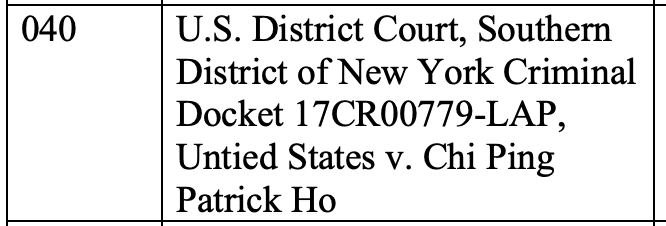David Weiss’ Exhibit List Looks Like One Matt Gaetz or James Comer Would Assemble
David Weiss’ team has submitted its exhibit list for Hunter Biden’s Los Angeles tax prosecution (as well as their motions in limine, which were — with the exception of a request to exclude mention that Hunter paid his taxes in 2021 — mostly uncontested).
The exhibit list includes a number of things that were expected — including:
- Almost 40 exhibits pertaining to Hunter’s ex-wife Kathleen Buhle and their contentious divorce
- Documents pertaining to Jeffrey Gelfound, the accountant who did Hunter’s taxes in 2020, who will almost certainly be a key witness on the most serious tax evasion charges
- Payment records to Lunden Roberts, Hunter’s expensing of which is one of the most compelling pieces of evidence of intentional tax evasion
But it also includes a number of frothy right wingers’ favorite documents.
There is a Tony Bobulinski email that incorporates the “10 for the Big Guy” email — possibly an attempt to show that Hunter didn’t object to that claim, a complaint that comes straight from Matt Gaetz during Hunter’s testimony.
The indictment makes much of the fact that Hunter cut his partners out of this deal; there are multiple pieces of evidence that show one reason he did was he didn’t like Bobulinski’s Russian ties, which if David Weiss wants to talk about Bobulinski’s Trump and Viktor Vekselberg ties, by all means, let’s have it.
In any case, it doesn’t relate to non-payment of taxes, particularly not in 2018.
There are two references to the SDNY Patrick Ho docket — apparently to the docket itself, not the filing that redacted the name of someone believed to be Hunter.
Hunter did get a huge payment from Ho, ostensibly to find legal representation for Ho’s case. At a time when CEFC was recruiting Trumpsters like James Woolsey, Ho also kept ties with Hunter who — in 2018 — could be of no use to him (which is why CEFC was instead focusing on Woolsey).
Ho has recently claimed — for the benefit of frothers in Congress — that Hunter did nothing for huge payment he got for arranging legal representation in this case. It’s a remarkable claim at this late date and would be still more remarkable if introduced in a tax case.
And finally, prosecutors have included an email that probably dates to 2015 regarding the consulting set up with Blue Star Strategies.
On top of the fact that 2015 is not a charged tax year (indeed, the indictment says Hunter declared his 2015 Burisma income) and DOJ reviewed this for years and years and never substantiated a FARA charge, it is likely one of the almost 10% of documents that Joseph Ziegler sourced to the laptop. As I described in this post, the email I have in mind showed up in somebody’s mailbox recognizing “Burisma” as “Burials.”
Prosecutors had moved, with no objection, to prohibit Hunter from arguing that the prosecution team got sucked in by a Russian influence operation (in context, it was a reference to Alexander Smirnov). But if they’re going to rely on one of the most anomalous emails, potentially one only available on a laptop suspiciously similar to the one Lev Parnas said was being dealt by Burisma, the question of Russian influence operation should remain on the table.
Of these documents, only the Ho payment is even directly relevant to the 2018 taxes. And each of these documents would create all sorts of discovery problems and mini-trials about misrepresentations of Hunter’s motive.
Prosecutors have not yet filed their 404(b) notice; perhaps they want to turn the non-crime of monetizing a famous name into a crime?
Or perhaps David Weiss simply wants to use his tax case to feed right wing frothers during an election season.



